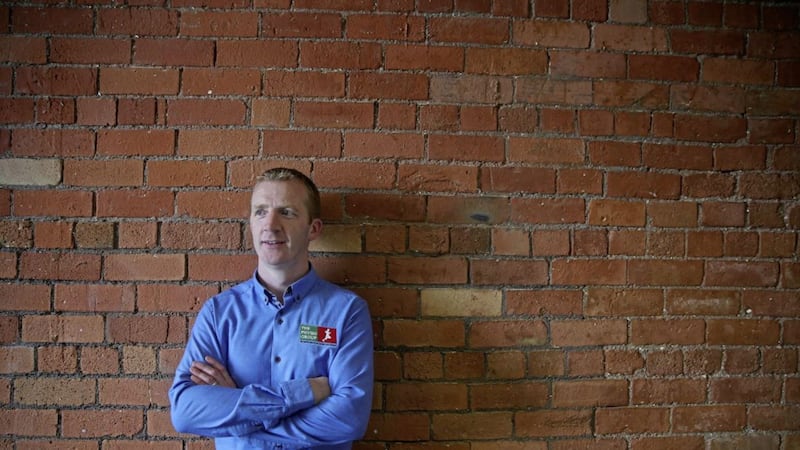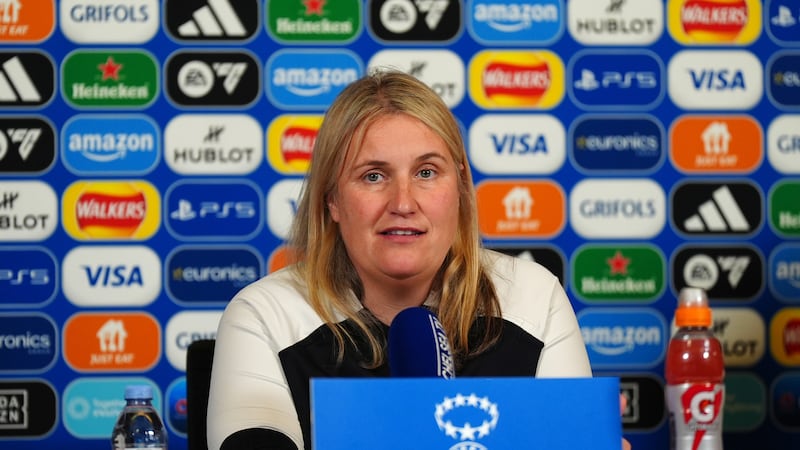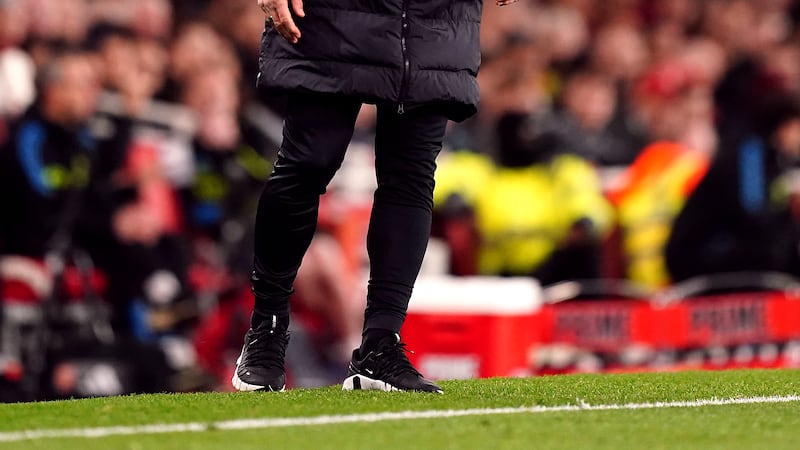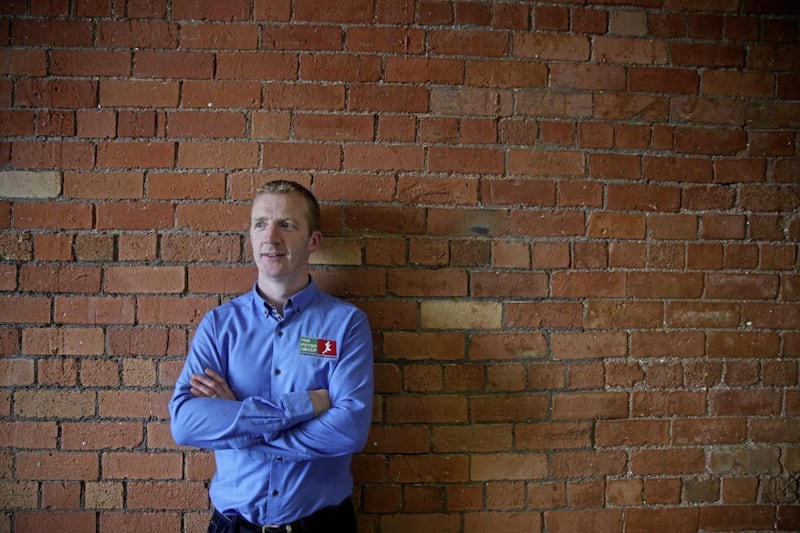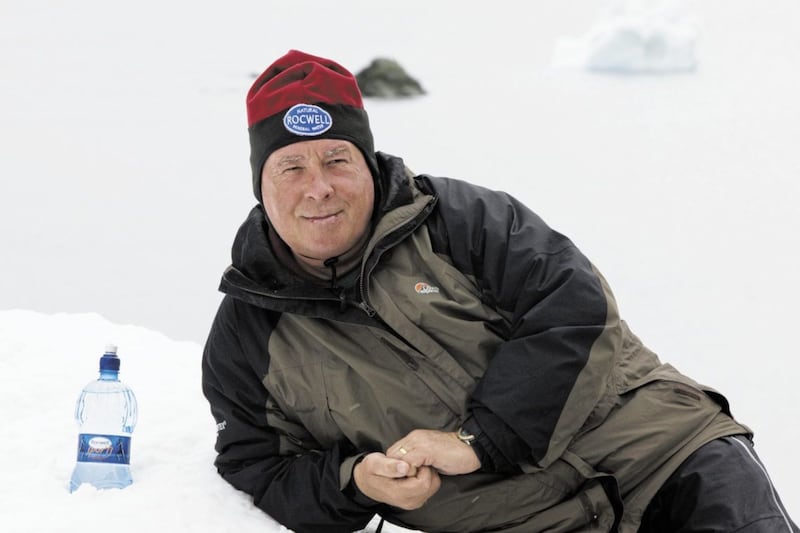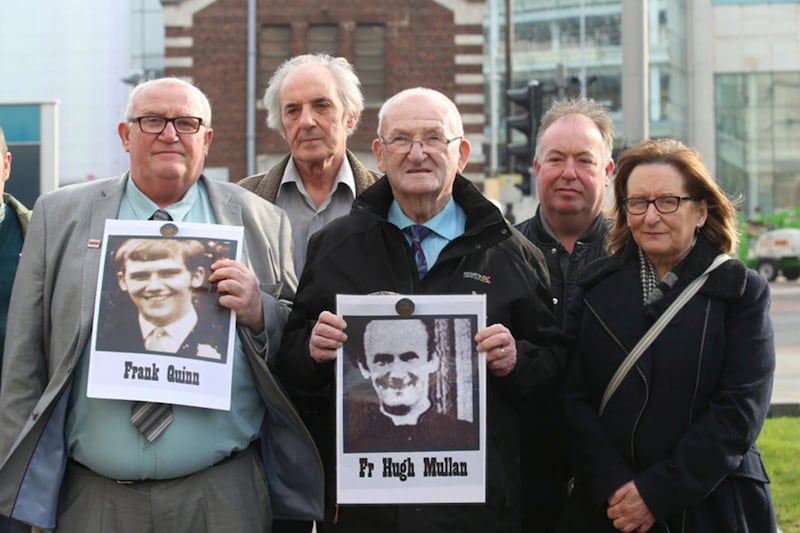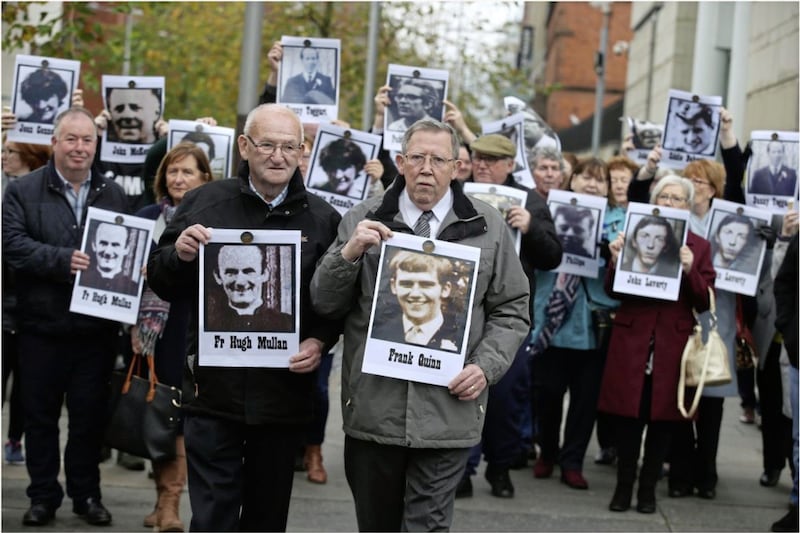FRANK Quinn was at a hurling game between Clonduff and Newry Shamrocks as the final chapter in Liverpool’s title-winning season played out on Wednesday night. Soccer has never really been his thing, despite being immersed in that world once upon a time.
But when he got back home, Quinn tuned in to watch the players celebrate inside an empty Anfield. There, front and centre, was a face he recognised. Quinn couldn’t help but smile.
From 2002-’05 the Hilltown man was a physio with Premier League outfit Sunderland, around the same time a young lad called Jordan Henderson was starting out on a dream that would ultimately lead him to the very top of the game.
He made an instant impression and Quinn couldn’t have been more delighted to see captain Henderson – who was yesterday named Football Writers' Association player of the year - help Liverpool end a 30 year wait to be crowned kings of England.
“You can only say fair play to him.
“Jordan was about 12-13 odds at that time, you’d have seen those boys on Saturdays because that age group would’ve been playing their home games at the training ground. You’d also have got to know a few because on first team match-days Sunderland used those lads as ball-boys.
“With Jordan, he was just this cheery, enthusiastic, chatty wee fella, really happy to be there in the moment. Some of the others, you knew there was a pushy parent behind them, or it was a kid who was always under pressure to be in an academy environment, but not Jordan.
“If the coaches asked him to do something, he took instruction on board and did it. He wasn’t playing under any pressure, he was just happy to be there. He stood out that way.
“What you saw on Wednesday night was the elite of the elite and when you’re working closely with those players, you know all the sacrifices they have made and what it takes for players to reach the top level.
“It’s just nice to see a young lad who you saw starting out and that’s where he’s ended up.”
Quinn, too, has come a long way since the start of his physiotherapy career. A well-known figure in GAA circles, the son of former Down chairman Gerry Quinn has worked under four different Mounty County managers – Paddy O’Rourke, Ross Carr, James McCartan and Paddy Tally – either side of a stint with the Antrim footballers.
But it was in England’s north-east where he learned his trade, progressing from working with the likes of England cricketers Paul Collingwood and Steve Harbinson at Durham to the Stadium of Light at 26 years of age.
In order to take that leap of faith in pursuit of his profession, Quinn had to park his own sporting ambitions – though he didn’t know that would turn out to be a long-term arrangement.
“We [Clonduff] won the championship in 2000 under Frank Dawson, and I remember at the dinner dance that year saying to him ‘look, I’m going to England for six months, don’t forget about me’. Famous last words…”
At Sunderland, meanwhile, a tumultuous time for the club was just around the corner. Peter Reid – the man who conducted Quinn’s final interview – headed for the exit door soon after, before Howard Wilkinson’s short stint in the hot seat gave way to Mick McCarthy’s premiership.
It was a steep learning curve, and one that threw up some unexpected challenges in those early days.
“You had to have a working relationship with players, but if a hard call had to be made you couldn’t let a friendship get in the way of that. Sometimes you were tested on that a wee bit.
“I remember one high-profile player who was coming towards the end of his career, he was down to play a reserve game. As we were taking stuff off the bus he told me he was going to go down after 20 minutes, and asked me to take him off.
“I didn’t know if it was a trap or what, so I went to the reserve manager and left it in his hands. Sometimes there’s a bit of thinking outside the box required too. With Jason McAteer one time, he developed a bit of hamstring trouble on both sides, and we were wondering what was going on. There was nothing had really changed in his training.
“Now, Jason had bought himself a brand new Merc, so we got him to show it to us. We went out and this thing had sport seats – he was nearly sitting on the ground it was that low, his knees were up in his chest. He got himself a wee Mini instead, it was a big comedown for him in terms of the car but it helped clear up his hamstring problems.”
Judgment, Quinn would learn, was also going to be key to earning the trust of those around him.
“You learn very quickly is you can’t cheat nature. While you’re dealing with very fit people, a four week injury was a four week injury.
“From a manager’s point of view, if it should have been a four week injury but it dragged out to a six week injury, that’s when you might have a problem. The big no-no in professional sport is breaking down from a recurrence of the same injury.
“When somebody’s back, they have to be fit to put a run of games together. Your decision-making has to be on the button, and there’s pressure that comes with that.”
It is here that he noticed a distinct difference between the approaches of GAA managers and those operating in the professional realm – especially coming up to Championship time.
“It’s a tougher debate with a GAA manager than what you would experience in the Premier League. You’ve a lot more convincing to do,” added Quinn, whose Physio Group company has bases in Newry, Newcastle and Belfast.
“From a GAA point of view, especially at inter-county level, the season hinges on Championship. Come that time of the year emotions are running high. As a physio, you’re the one who has to leave emotions out of it and still remain objective.
“In soccer, the three points at the start of the season are as important as the three points at the end of the season. League’s the big thing, so they’re playing the long game. There’s no point asking a player to take a risk now and maybe lose him for 15-20 games, where at Championship time in GAA, it’s all or nothing.
“A lot of the time in Gaelic I’d be saying to managers ‘I’m going to be having a different conversation with a player than you are’. A player’s going to want a manager to think he wants to play, but to a physio they’d be saying ‘here, I’m still getting a wee bit of bother with this’.
“It’s different for soccer players – they have their career to think of too. The biggest selling point for a player is how many games he played last year. But then you have a situation like we had with a guy like David Bellion, who was at Sunderland but had signed a pre-contract with Manchester United.
“He couldn’t move until the summer. As soon as he signed that contract, he got out the cigars, he was in with physio but none of us wanted to touch him because we knew the agenda. He didn’t want to play to make sure he was right when he went to United.”
Working with managers across different codes has been an eye-opening experience too. Quinn has seen the stresses and strains jobs have taken on men over time, and come to appreciate the unique approach each brings to the task.
Former Republic of Ireland manager McCarthy is a case in point.
“Mick had a contrasting style to Howard Wilkinson.
“Under Wilkinson, players would’ve had pages and pages of stuff to read pre-game on the opposition. Before the games, there was a lot of talk about set pieces, training was all focused on set pieces.
“There was always a whiteboard up in the changing room and Wilkinson would usually have an essay written up on it. Before McCarthy’s first home game in charhe, the boys were out warming up and I was passing through the changing room when I noticed something on the whiteboard, in massive writing: ‘Don’t let these c**ts beat us’.
“It was such a difference to what had gone before,” laughs Quinn, “Wilkinson wouldn’t even have swore but Mick was a different character.
“You could see he was struggling at times when things weren’t going well but a manager always has to go out and set the tone for everybody else. If a team sense ‘this man’s not at it today’, that spreads through them all.
“I always remember what turned out to be Paddy O’Rourke’s last game over Down. We had a bad day in Sligo, and after that he probably sensed that could be it.
“The boys were downbeat but Paddy pulled everybody into the dressing room and told them this was only sport - your family’s more important than this, your working lives are more important than this. No matter what the outcome of that game was, or how disappointed he was personally, he saw it was his job to lift those boys.
“He could’ve packed his bag and never spoke to one of those players ever again. I always remember thinking that was big of that man.”
As he sits in his car preparing to head for Newry and Clonduff’s clash with the Shamrocks, but Quinn’s work isn’t done yet. Before he leaves, he has another call to make – this time to Leah McCourt.
The MMA star is currently recuperating after undergoing shoulder surgery earlier in the week but Quinn, who has worked with the Saintfield woman for “four or five years”, has no doubts she will return bigger and better.
It is being around those kind of people – as with Jordan Henderson all those years ago – who continue to give him inspiration.
“I love working with motivated people.
“The likes of Liam Doyle, Ambrose Rogers, those boys had multiple injuries but they always wanted to bounce back. Leah’s the same – when can I get back going again? I love working with people who have that sort of positive attitude.
“You know when they get the reward they really appreciate things, and you can see that now with Jordan.”
